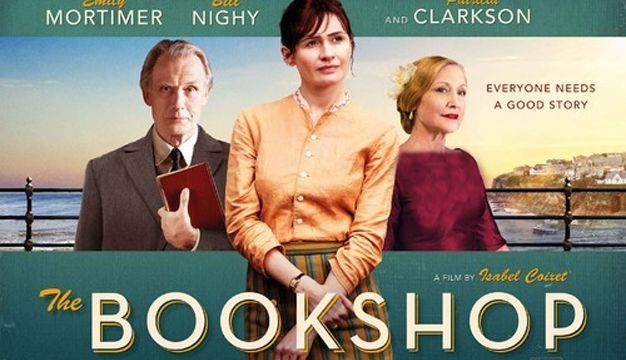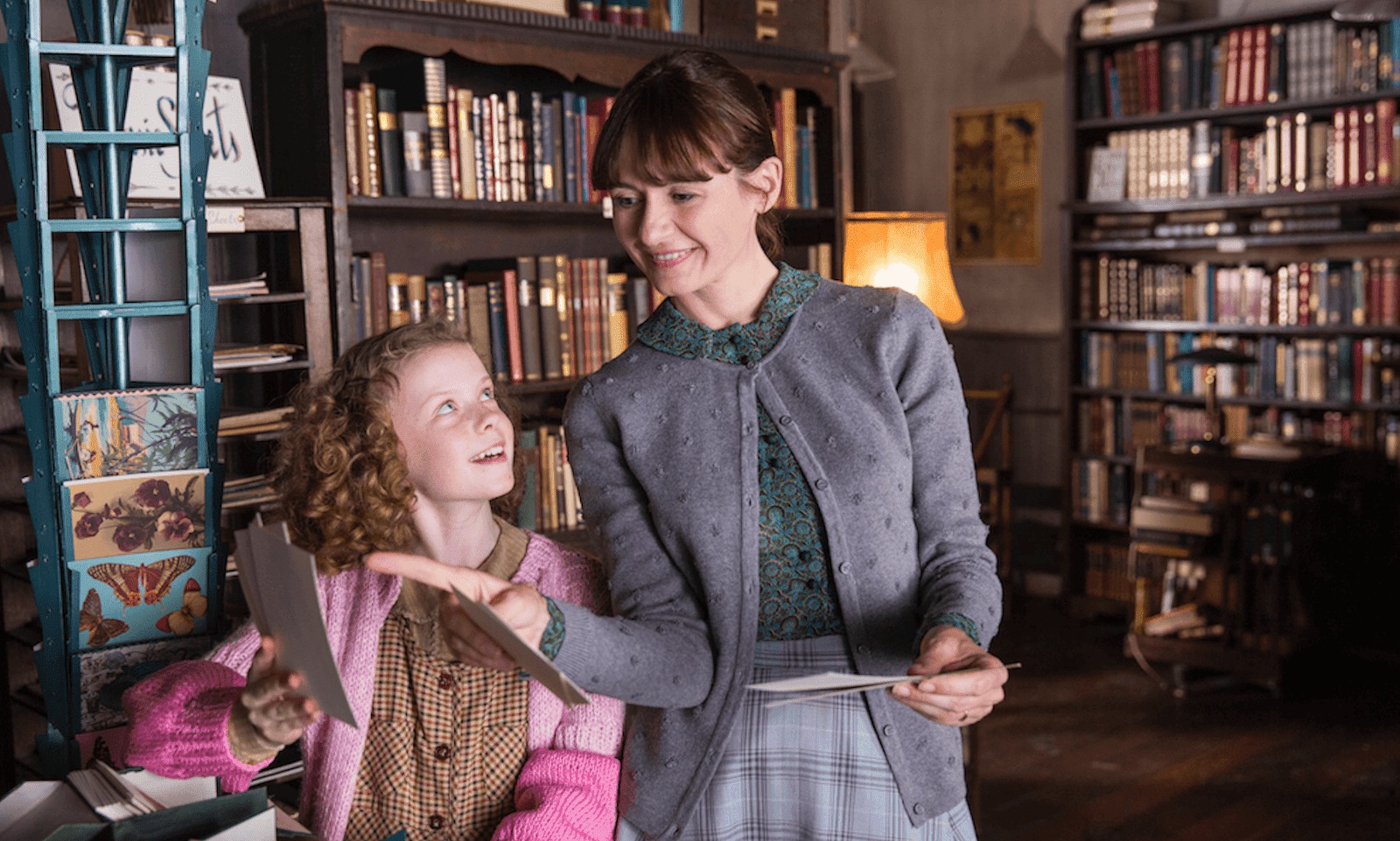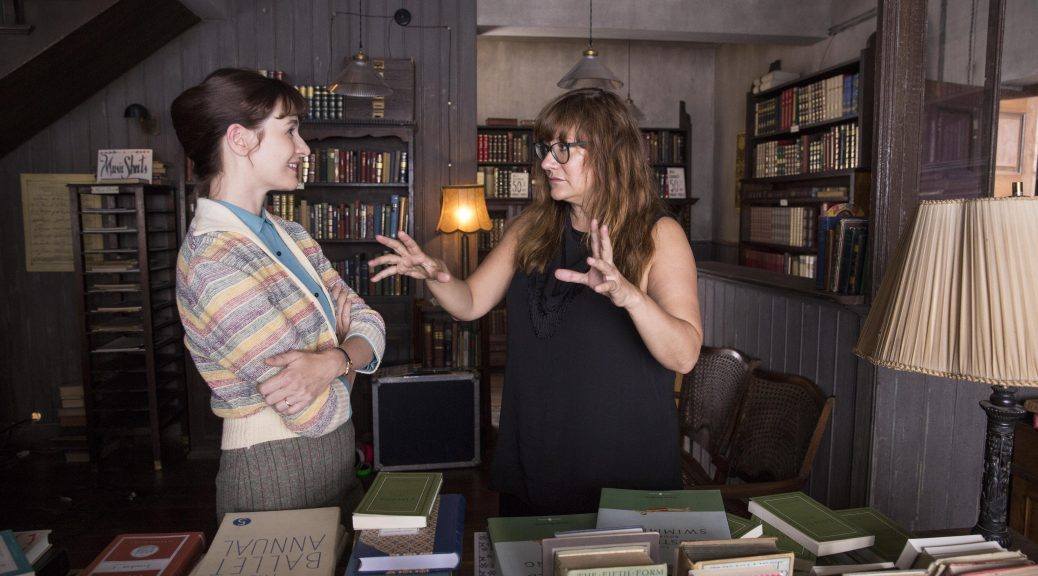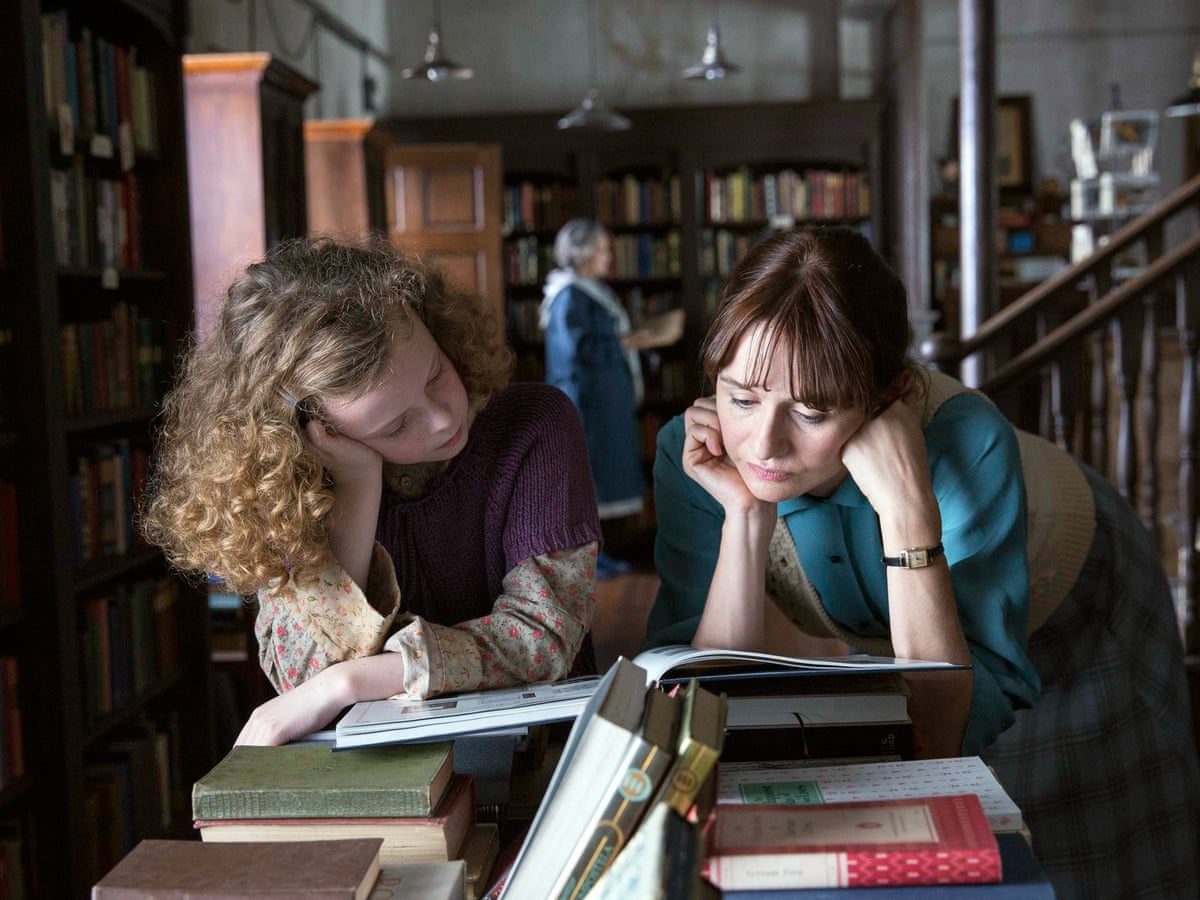The Bookshop (2017)

“The Bookshop” is a 2017 drama film directed and written by Isabel Coixet, based on the 1978 novel of the same name by Penelope Fitzgerald. Set in the small coastal town of Hardborough, Suffolk, the story follows a determined woman named Florence Green who faces opposition from the townspeople and powerful local figures as she attempts to open a bookstore. The film captures themes of resistance, individuality, and the power of books in a society that often rejects change. With a standout performance by Emily Mortimer as Florence, the movie explores the complexities of pursuing one’s passion in the face of adversity.
Florence Green (Emily Mortimer) decides to open a bookshop in Hardborough, a small, conservative town where the idea of a bookshop is met with skepticism. She faces immediate opposition from the wealthy and influential Mrs. Gamart (Patricia Clarkson), who believes the bookstore will disrupt the town’s social order. Despite the resistance, Florence opens the shop, drawing the attention of the townspeople, including the reclusive and eccentric Edmund Brundish (Bill Nighy), who becomes an unlikely ally. As Florence struggles to keep the bookstore open, she faces personal and professional challenges that test her resolve.
Florence is portrayed as a strong-willed and independent woman who is unafraid to challenge the norms of the town. Her passion for books and literature drives her to pursue her dream despite the odds against her. As the film progresses, Florence’s character evolves from a hopeful and optimistic entrepreneur to a woman who learns the harsh realities of resistance and the cost of standing up for her beliefs. Her relationship with Edmund Brundish, a book-loving recluse, adds depth to her character, showing her capacity for connection and her growing understanding of the human condition.
At its core, “The Bookshop” explores the themes of resistance and individuality. Florence’s decision to open the bookstore is an act of defiance in a town that is resistant to change. She represents the power of individuality and the determination to follow one’s passion in the face of opposition. The film contrasts Florence’s quiet persistence with the stubbornness of those who seek to maintain the status quo, particularly Mrs. Gamart, who sees the bookstore as a threat to her own ambitions. Through Florence’s journey, the film delves into the challenges of being true to oneself in a world that often favors conformity and tradition.

Books and literature play a central role in “The Bookshop,” both as a symbol of knowledge and a form of resistance. Florence’s love for books serves as the foundation for her journey, and the bookstore becomes a space where the town’s inhabitants can access new ideas and perspectives. For Florence, the bookstore represents freedom and creativity, offering a sanctuary from the constraints of everyday life. The relationship between Florence and Edmund further highlights the transformative power of books, as they form a bond over shared literary interests. Ultimately, the film illustrates how books can be a means of personal and societal growth, even when faced with opposition.

“The Bookshop” is visually striking, with beautiful cinematography that captures the coastal town’s serene yet somber atmosphere. The small, picturesque town of Hardborough is presented as both a charming and limiting environment, reflecting the film’s exploration of the tension between change and tradition. The use of muted colors and quiet, contemplative scenes enhances the film’s meditative tone, allowing the audience to feel the weight of Florence’s struggle. The contrasting settings—Florence’s lively bookstore and the rigid, conservative homes and social spaces—reinforce the central conflict of the film.

In conclusion, “The Bookshop” is a moving and thought-provoking film about the power of passion, individuality, and the written word. Directed by Isabel Coixet, the film beautifully adapts Penelope Fitzgerald’s novel, offering a powerful narrative about one woman’s fight against the odds to make her dream a reality. Through strong performances from Emily Mortimer, Bill Nighy, and Patricia Clarkson, the film brings to life the timeless themes of resistance, self-expression, and the importance of literature in shaping our world. “The Bookshop” serves as a poignant reminder that even in the face of overwhelming opposition, the pursuit of one’s dreams can make a lasting impact.











